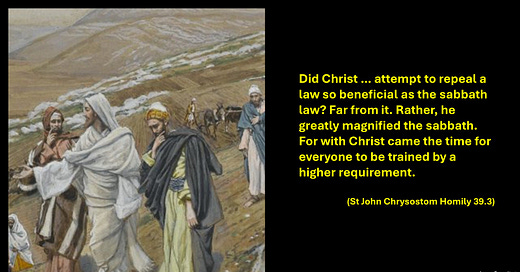What are You Hungry For?
A Reflection on this Fridays Gospel (Matthew 12:1-8) – 19 July 2024
Jeremiah, warning the people of Jerusalem to repent, declares; “the hunger you dread shall pursue you to Egypt and there you shall die.” (Jeremiah 42:16b) Hunger, an insatiable urge, can drive people to incredible lengths, even to conversion. The insatiable urge can be more than physical. Jesus tells us “Blessed are they who hunger and thirst for righteousness, for they will be satisfied.” (Matthew 5:6 NABRE) Hunger, rightly oriented, is indeed blessed.
Consider the story of the Prodigal Son (Luke 15:11–32). His hunger for pleasure drives him to insult his father, wanting his inheritance before his father was even dead. He cannot wait for his father to die to satisfy his craving for a life of self-pleasure. Eventually, His hunger for pleasure ruins him such that physical hunger drives him to the depths of caring for swine. Thus, for hunger, he abandons even his faith to care for those animals which the law declares as unclean, untouchable. (Leviticus 11:7–8). Hungering after the wrong things can drive us to do the unthinkable.
In the Gospel today, we hear of the hunger of the disciples as they walk through a grainfield on the Sabbath. Hunger seems like a mild description of what was going on with the disciples. The Greek word, translated as “hunger” in English, does not capture the intensity of the moment. The Greek word is pĕinaō (πεινάω). It means that the Disciples were famished! The law allowed travelers to eat from the field as they passed as long as they did not gather provisions for the journey (Deuteronomy 23:26). Yet, though not stealing, the disciples knew well that they were breaking Rabbinic law regarding work on the Sabbath.
Faithful Jews, as should we, take the Sabbath rest very seriously. The Ten Commandments require that we keep the Sabbath Holy, set apart, through rest. (Exodus 20:8–10) The Hebrew word, “Sabbath” (שָׁבַת) means, “Day of Rest.” Over time, Jewish religious leaders tried to draw the line between work and rest. Eventually, they developed a complex set of rules that included prohibitions against picking, threshing, and winnowing. The disciples were clearly working. In their hunger, they picked grain and rubbed it between their hands to remove the husks and thus broke the restrictive rabbinic law on three different counts. The Pharisees, waiting for any infraction of the Law, especially by Jesus’ disciples, jump!
Jesus responds by telling the Pharisees that their hunger for the law is disordered. The Lord succinctly recalls the exceptions in Sacred Scripture to preserve and care for life. Jesus gives three examples of when rightly oriented hunger must override the Sabbath law for (1) genuine human need (1 Samuel 21:1–6); (2) right worship (Numbers 28:9–10); and (3) acts of kindness (Hosea 6:6).
Jesus does not overthrow the law or the importance of a holy Sabbath observance. He does remind the Pharisees, and all who impose rules of piety, that God created the Sabbath for humanity, not humanity for the Sabbath. They hunger for the law and their self-appointed rules. Jesus, the Lord of the Sabbath, understands that the Sabbath was intended to satisfy a greater human need; a hunger to be fed with holy bread, for right worship, and for acts of true charity. Life and love predominate. We must always seek to fulfill a holy hunger such that we are willing to take any risk to satisfy it. Jesus tells us, “My flesh is true food, and my blood is true drink.” (John 6:55 NABRE) “One does not live by bread alone, but by every word that comes forth from the mouth of God.” (Matthew 4:4 NABRE) What else is more important?
Reflect on how you satisfy your hunger, especially on the Lord’s Day. Is your day spent seeking your own pleasure, acting like the prodigal son, as if our Heavenly Father does not matter? Or is your day spent feeding upon Him on whom our life truly depends? That is why the Church insists that every Sunday is a Holy Day of Obligation. To live, we need the holy food offered at Mass, the Word proclaimed and consumed. Certainly, you can commune with God walking in the woods or being with your family. But Holy Mass is the food that we need first. It is the Lord we should be starving for, He is our life, our Salvation.
Keep the Sabbath Holy, hunger and thirst for righteousness. Dread the hunger which drives us away from God. Never rest seeking to satisfy the hunger for all that is holy.
We must be God’s starving clients. Let us take our place as beggars at the gate of his presence, for he gives food to the hungry. (St Augustine, Psalm 145.17)
Endnotes:
Saint Augustine. Expositions of the Psalms 121–150. Ed. Boniface Ramsey. Trans. Maria Boulding. Vol. 20. Hyde Park, NY: New City Press, 2000. Print. The Works of Saint Augustine: A Translation for the 21st Century.
St John Chrysostom. “Homilies of St. John Chrysostom, Archbishop of Constantinople on the Gospel according to St. Matthew.” Saint Chrysostom: Homilies on the Gospel of Saint Matthew. Ed. Philip Schaff. Trans. George Prevost and M. B. Riddle. Vol. 10. New York: Christian Literature Company, 1888. 257. Print. A Select Library of the Nicene and Post-Nicene Fathers of the Christian Church, First Series.





Amen, a praise worthy reflection!